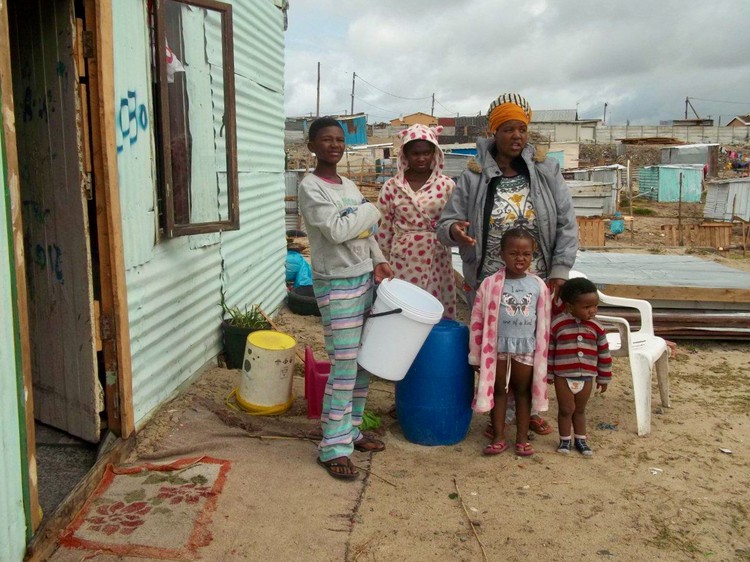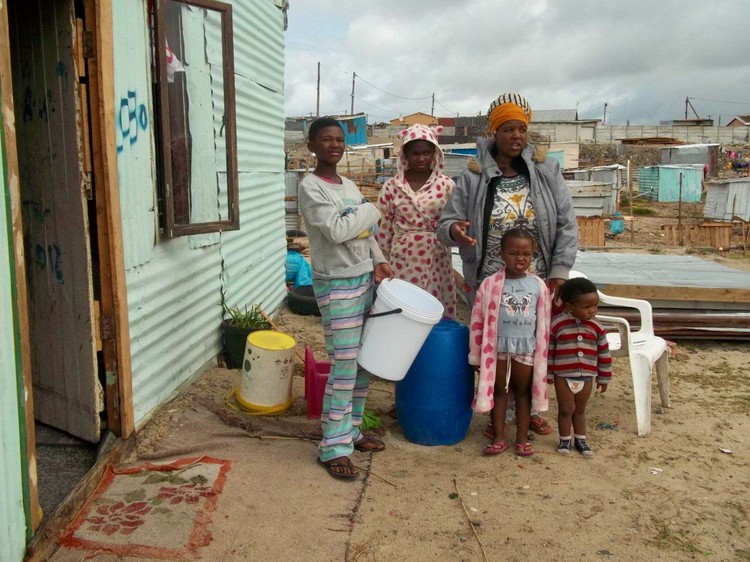
How a South African Mom Copes Without a Toilet or Water During These Tough Times
To obey lockdown regulations, Batyi tries to keep her family inside her corrugated iron shack in Khayelitsha, Cape Town. “I worry a lot about them catching coronavirus,” says Nozakuthini Batyi. “I make my kids stay in my yard or lie in bed throughout the day.” As a means to ensure her kids stay indoors, she […]

To obey lockdown regulations, Batyi tries to keep her family inside her corrugated iron shack in Khayelitsha, Cape Town. “I worry a lot about them catching coronavirus,” says Nozakuthini Batyi. “I make my kids stay in my yard or lie in bed throughout the day.”

As a means to ensure her kids stay indoors, she makes them do house chores and school work. “I instruct my kids to scrub the floor, wash the dishes and do laundry to keep them too busy to loiter around,” she says.
Batyi moved her family to Empolweni informal settlement, located on City-owned land in September last year. Previously, she rented a shack in section 32, Makhaza, until she broke up with her boyfriend. “Afterwards I could not support my kids and pay rent on my own, so I made a decision to stay here rent-free.”
Her shack has some furniture – a bed, a chest of drawers, an old chair. When GroundUp visited, her bed was neatly made up and shiny pots were placed on the pieces of furniture.
She worries about fire, because criminals burn cables in the bush nearby before selling them to local scrap dealers.
Since the lockdown she no longer goes to other townships. “I only take a taxi to Makhaza or Mitchell’s Plain to buy essentials at Shoprite,” says Batyi.
Over the Easter weekend police were out enforcing the lockdown.
“The police find residents eating outside or just milling around and order them to stay inside their shacks,” she said.
But a lack of communal taps and no public toilets make it difficult for her and her children to stay indoors.
She has to walk for about 15 minutes to a communal tap located in Zweledinga informal settlement to fetch water to drink, cook, do laundry and bathe her kids. She queues three times a day for water.
When the City’s water tanker arrives on Baden Powell Drive, residents flock to it. “As we stand in the queue beside the truck, we push and nudge each other to ensure we get water before it runs out or before the truck leaves,” says Batyi.
To relieve themselves they walk ten minutes to bushes nearby. When her children need to go she has to accompany them. “Sometimes we go to the bushes as a whole family,” she says.
At night they use buckets which she empties and cleans. She wishes she had a toilet in her yard.
Published originally on GroundUp / © 2020 GroundUp.
